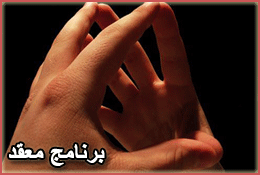Beginner - Complex program

In today's not so complex lesson we teach you how to describe things or people using uncomplicated vocabulary. The dialogue is very colloquial and the vocabulary very common so you are likely to recognize some of it when listening to "non-classical" Arabic. If you don't listen to this lesson, you could lose out on many useful phrases. La taqooloon maa 7ad'artakum!


 , which is a derivative of “rayih” (going), and which expresses futurity in the first sentence of “Complex program”, belongs to the same grammatical category as “bi-”. It is apparently used in more or less the same way in the Syrian and urban Kuwaiti dialects (cf. Kristen E. Brustad, The Syntax of Spoken Arabic: A Comparative Study of Moroccan, Egyptian, Syrian and Kuwaiti Dialects (Washington: Georgetown University Press, 2000), p. 241). According to Brustad, the future particles “b-” and “rah” are not used interchangeably in Syrian dialects. One particle expresses futurity plus intentionality, while the other one expresses futurity without intentionality.
, which is a derivative of “rayih” (going), and which expresses futurity in the first sentence of “Complex program”, belongs to the same grammatical category as “bi-”. It is apparently used in more or less the same way in the Syrian and urban Kuwaiti dialects (cf. Kristen E. Brustad, The Syntax of Spoken Arabic: A Comparative Study of Moroccan, Egyptian, Syrian and Kuwaiti Dialects (Washington: Georgetown University Press, 2000), p. 241). According to Brustad, the future particles “b-” and “rah” are not used interchangeably in Syrian dialects. One particle expresses futurity plus intentionality, while the other one expresses futurity without intentionality.
